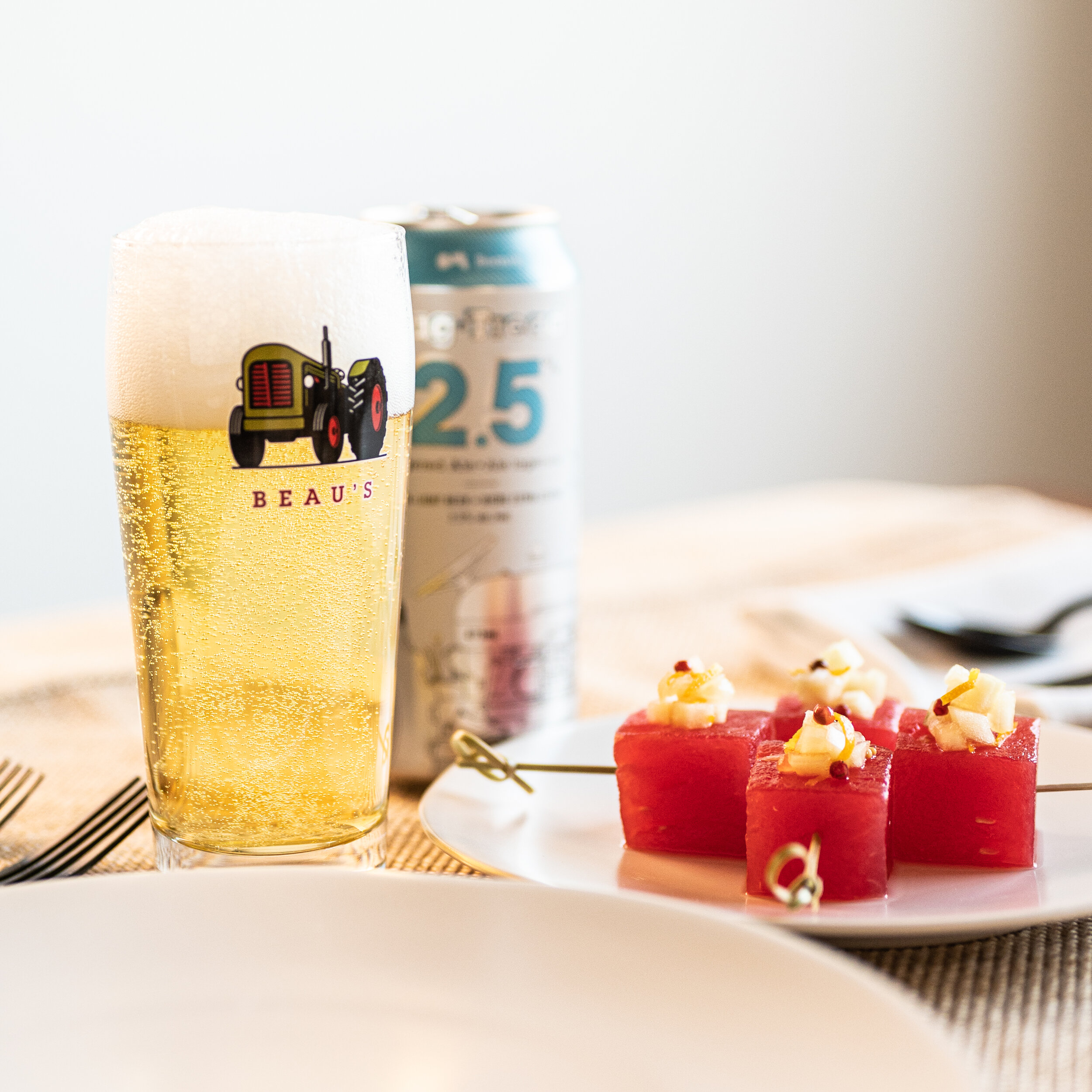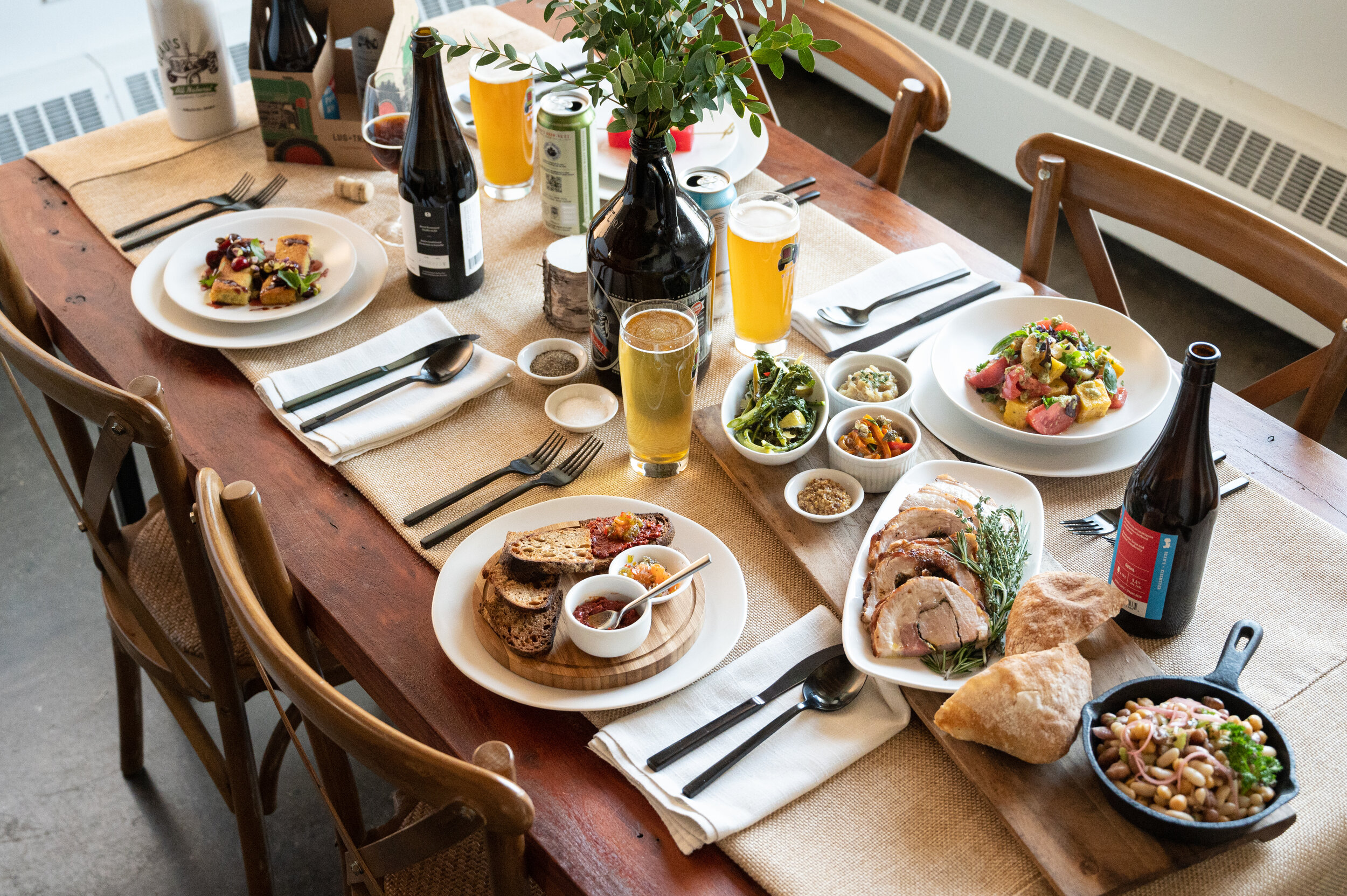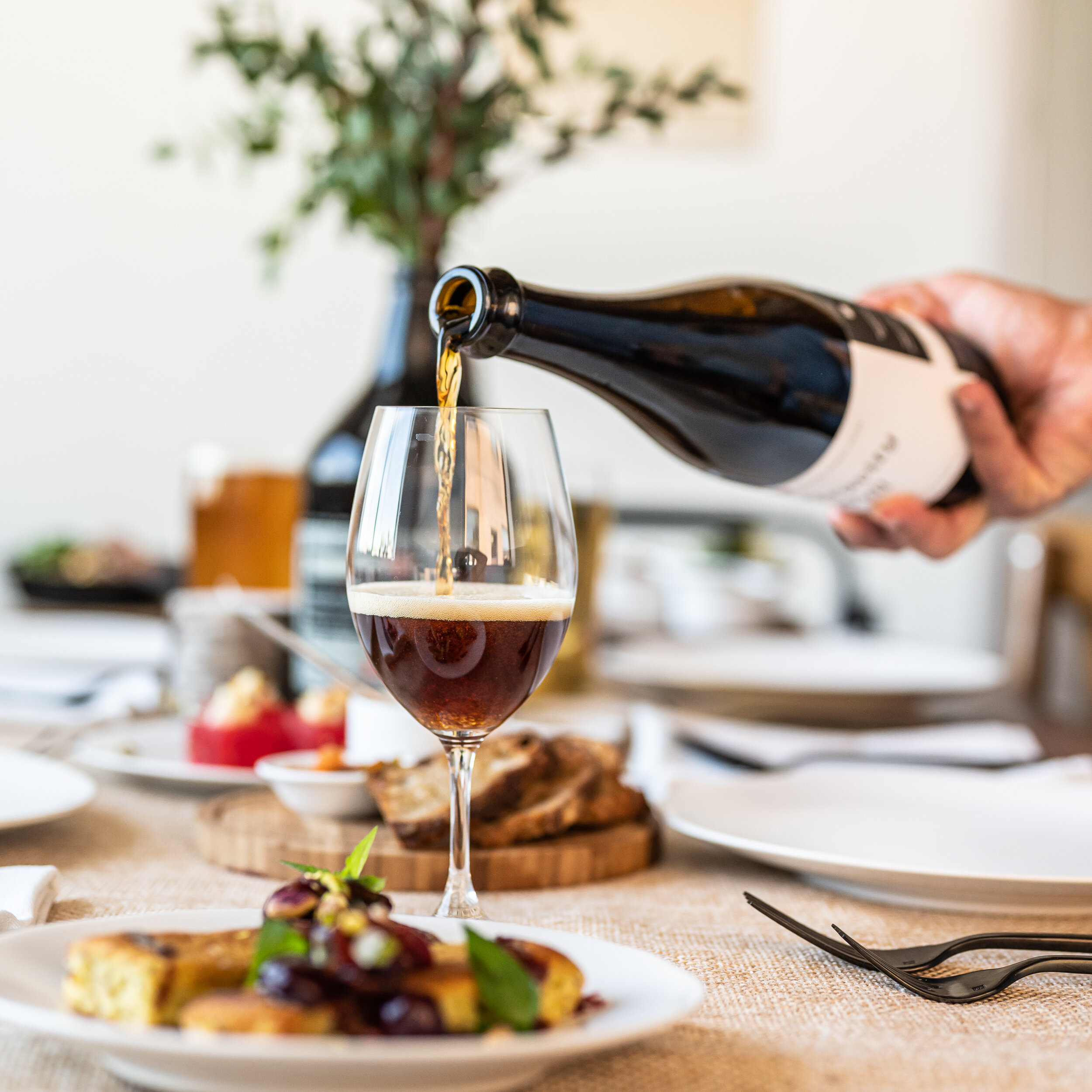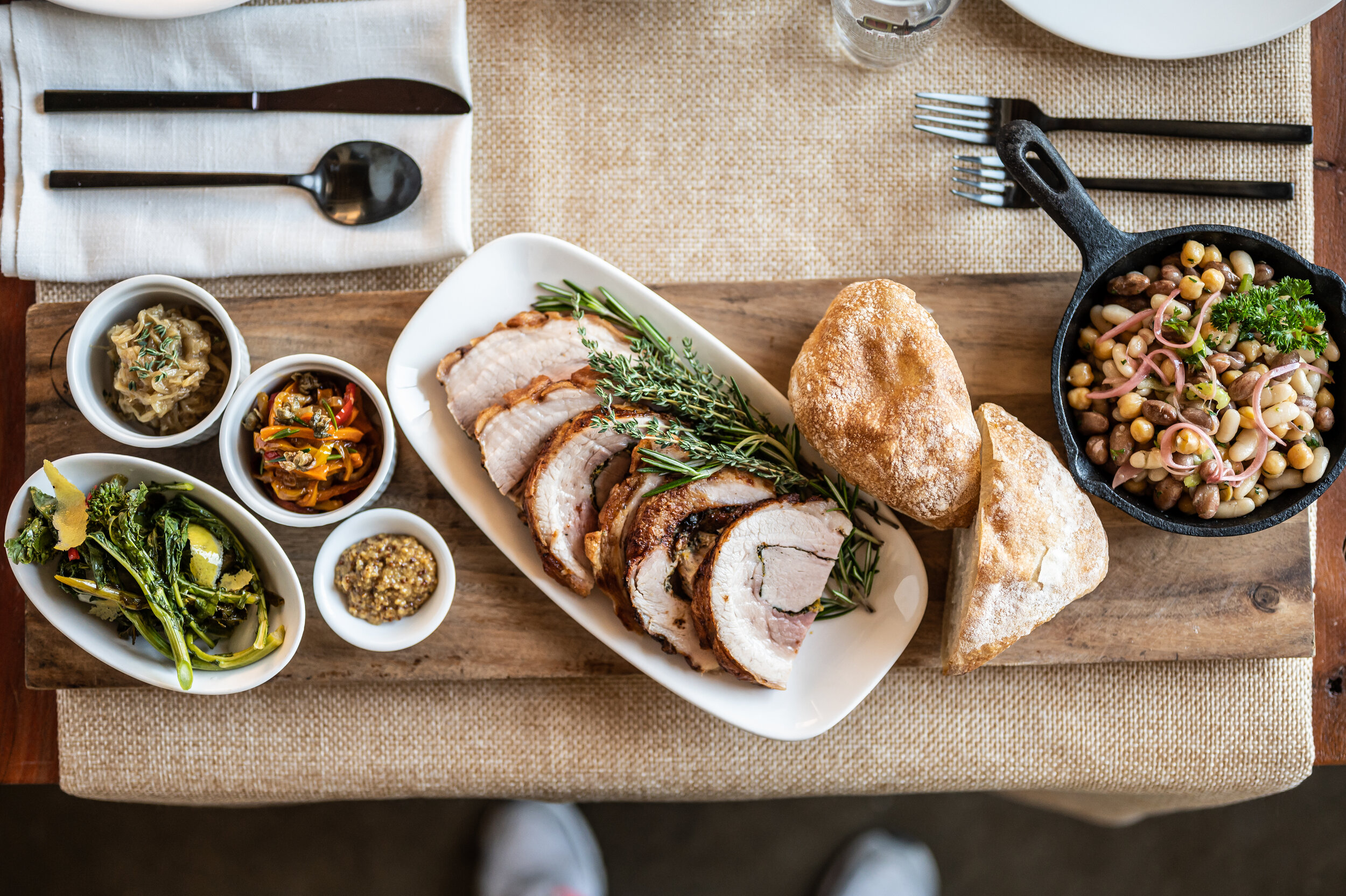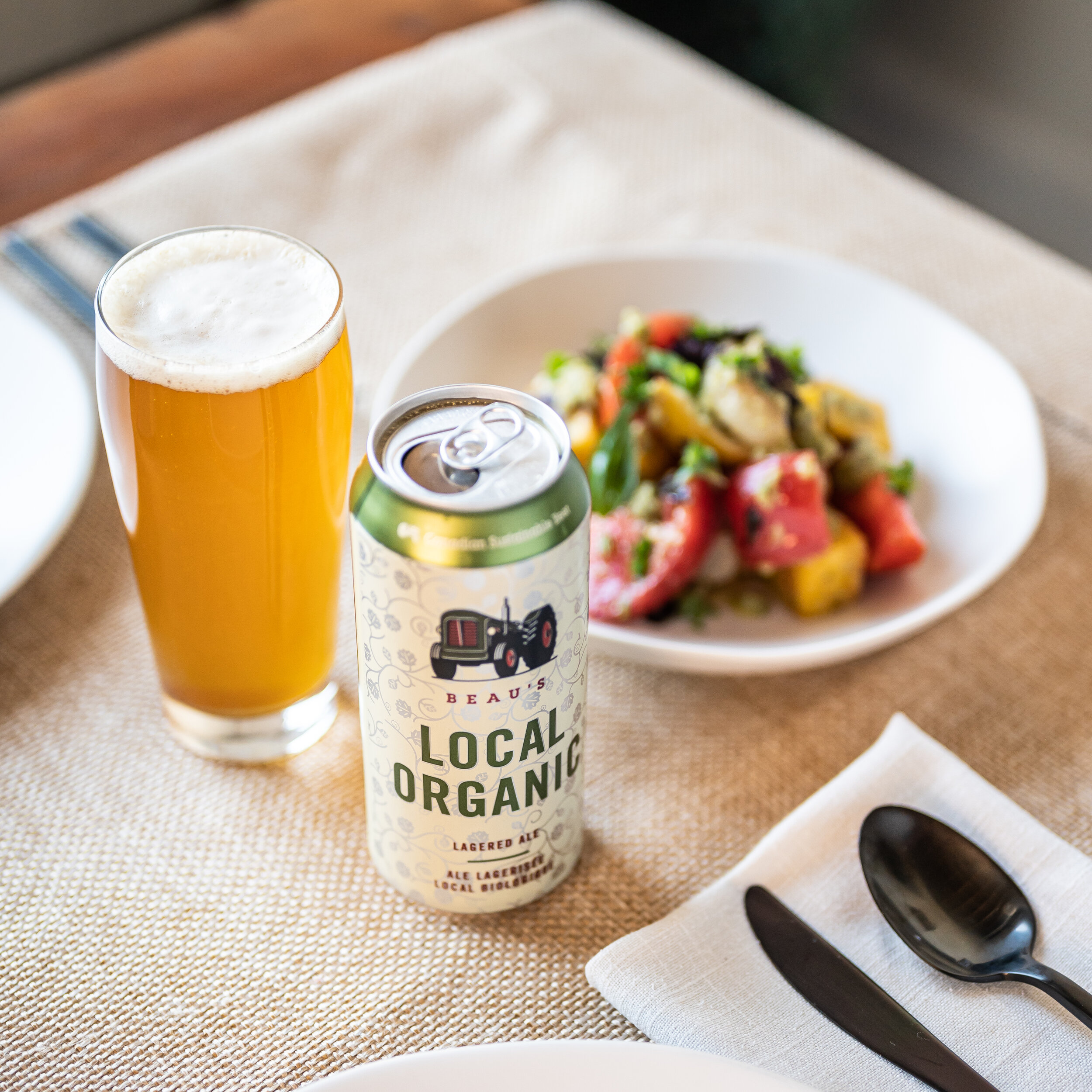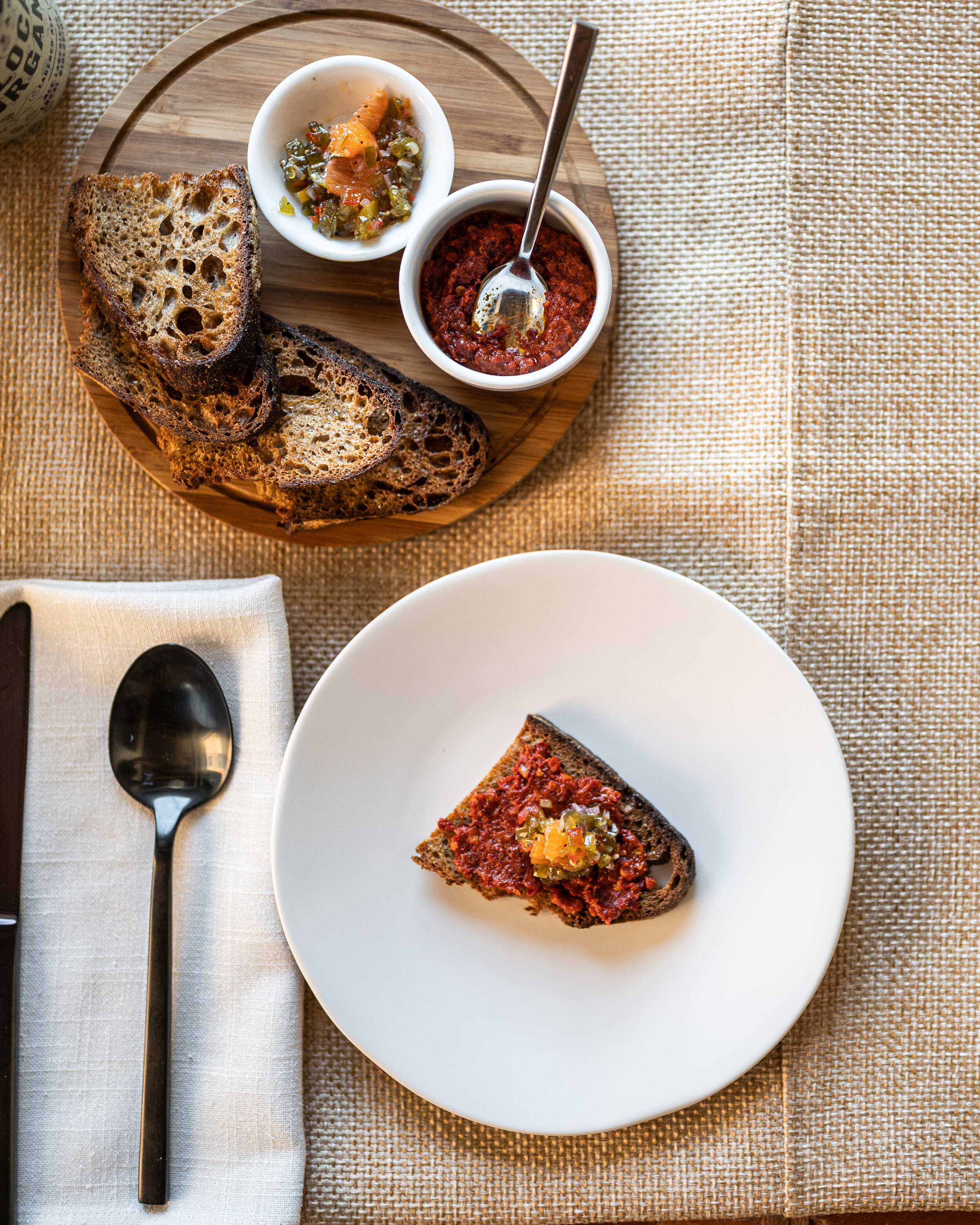Inside The Box: Ep 4 - Beau's Brewery
Beau’s Brewery
Don: Good morning everyone and welcome to another episode of Inside the Box I'm Don Sagarese. Today I've got the two handsome cats from just outside Ottawa from Beaus Brewery.
Since 2006, Beaus Brewery has been doing interesting, tasty beers, like their lug tread lager Ale, which I'm happy to display prominently for you today.
This family run business, they take a lot of pride in creating some incredibly unique beer with a lot of honest consideration for the environment, which we are going to learn shortly. They are well vested in the community and have lots of friendly relationships out there.
We have got Mr. Steve Beauchesne and Mr. Will Larkin.
Let me tell you a bit about Steve. He's the co founder of Beaus All Natural, family owned and operated independent Canadian craft brewery. Since 2006 Beaus has won more awards than I could fit on any reasonable amount of paper, but it's more than 125 national and international awards for everything from beer making, to marketing and package design. So we're, very proud to have you. The young Will Larkin here is approaching 20 some odd years in the business as I understand it and despite how young he looks, he's got a lot of experience, he communicates effectively and helps us get things from point A to point B and helps make it great. So welcome, gentlemen. How are we doing today? How's life outside the nation's capitol treating you both?
Steve: Very good, it's sunny outside and get some good, good company. So things couldn't be better.
Don: All the time, I'm asked what my favorite meals is, I'm a food guy. And for years and years and years now, I've been saying the same thing: “It's a burger off the grill, and a can of Beaus Lug Tread. So, thank you for giving me some of my most favorite meals. But a lot of people have misconceptions about beer and a lot of beverages.
Don: If you could make one myth or preconception about beer disappear what would it be?
Steve: Well, I'll start with maybe what the biggest misconception that bothers me is, which is that beer is only for men, and in particular, white men.
And since we started in 2006, people would always ask asked me the question, you know, what is your target demographic, and I have always answered someone who's legally allowed to drink and has taste buds.
Beaus has always approached beer in that it is something that is really good at bringing people together.
It has a convivial kind of spirit to it. And we have used our beer to create community.
And for me, the concept that that beer is, is a “guy's drink”, I find particularly just kind of silly, because it would rely on the fact that somehow, we tasted things differently than other people do. Its a matter of trying to be more inclusive and trying to make sure that we're not putting on any blinders or preconceived notions in the way that we approach community and approach our beer.
Don: And that's, that's an interesting point. And I think a lot of what you just described is derived in a lot of the marketing that has traditionally surrounded beer would you gents agree with that? It seems like we're bombarded with images of just young males having an experience with the product, but it goes much deeper than that, doesn't it?
Steve: That's right. I would say that the 1970s, through the 1990s marketing portrayed a very specific concept of beer--which was--you're supposed to drink a gallon of it. And it's supposed to make you attractive to women, and all sorts of really ridiculous kind of notions came along with that.
And I don't understand what the rationale was for excluding 50% of the potential market or who thought that was a good idea? But if you go back beyond the 70’s , you know, historically, women and beer were not exclusive things, historically, women were primarily the beer brewers as well as a significant part of the beer drinking population. It's really a modern invention that it's not an inclusive beverage.
Don: That makes a lot of sense. Marketing in essence is always a challenge. What challenges do you see? I mean, we touched upon a few, but What challenges do you see in marketing certain types of beer or your current portfolio, to sort of the current users and prospective clients?
Steve: Well, I would say our biggest challenge over the last 15 months is that we've really based our whole business off of the experience of putting a glass of beer in someone's hand and telling them why the beer is important.
I think we were a bit of an anomaly, more than half of our business pre pandemic was through bars and restaurants. And all of our marketing was event based, because we have a belief that if you can taste the beer, and you can hear about all the things that we do to make it special, you're going to be one of our fans.
And so our biggest challenge has been that our entire business model has been kind of thrown out. And so we definitely have had a challenge connecting with people. And we're so hopeful that over the next few months as some of these restrictions can ease up, we can see, and be seen again.
We've really focused on online sales on helping out where we can in the industry, but it is for social people, it's very challenging to live in a non-social world. So, we're very hopeful that everyone gets vaccinated, restrictions ease up and that we can get back to spending time in restaurants and pubs where, where we do a really good job of connecting with people.
Will: I echo that completely as being one of the social kind of people my main role was dealing with, with restaurants and that abruptly kind of ended. I can't wait for the moment that everyone's vaccinated, and we can get back into a dining room and enjoy the atmosphere. That's where we did a lot of our marketing where I enjoyed spending a lot of my time but going back to that would be hugely appreciated.
Don: Tell me gentlemen, was there a moment that you realize that it was a divine intervention that you wanted to move to a career in beer? Like, tell me a bit about both your histories in beer?
Will: First, my history in beer relatively short, my history in hospitality is a little more extended. I think the two are very interconnected. It's a way to connect people, for me to share stories and to break down barriers and borders. Hospitality, and beer in general is, I think, a way to connect people in interesting and unique ways. Through friendly convivial environments and conversations, and small acts of kindness.
Don: And Steve, what was your moment? I mean, you started the company in 2006. Correct?
Steve: That's right. And it might have actually been divine intervention, it was intervention of some sort.
My dad was running a textile business. And the whole textile industry basically left Canada and moved overseas. And so he was looking for something else to do. And I was an avid homebrewer and massive craft beer fan. And he came and visited me in Toronto one day where I was living at the time, and basically said, I've got to shut down this one business, I've got a few ideas.
One of his ideas was basically to say, “I always see you coming home with a with a new craft beer in your hands. What if I were to open up a craft brewery where that where the textile plant was?”
And kind of on the spot, I said, “Well, if you're serious Dad I'll quit my job and sell my house, and I'll move back home and start a brewery with you. And we literally spent the rest of the day dreaming up this brewery, and we just started working on it.
Don: The most interesting tidbits that I find in some of these interviews is to see what sort of things manifested in the past to create guest destiny. So, you and dad got together. You want to open up a brewery? How do you decide what ingredients play into the creations that you're making? You now have over 19 varieties, correct?
Steve: That's a good question. At any point in time, we tend to have somewhere between eight and 20. And depending on the season, we kind of fluctuate a little bit more, or a little bit less. Lug Tread has been our flagship beer since day one, and then we've got about six brands that are always available. And then there's the seasonal brands that we kind of rotate through all the time.
We've had some beer where we just came up with the coolest name ever for a beer and then had to design a beer around the what that name meant. There's been other times where we started with a particular ingredient that we were just really interested in. And then we decided to make the brew around that. And then there has been sometimes where it just feels like, again, this divine inspiration kind of comes out. And it's like, this is everything all at once. And there's, you know, lots of variations in there…And sometimes, you know, the, the pilot doesn't change at all, to the to the final, final recipe.
More importantly, worth noting, your local organic is as Canada's most sustainable beer. It's the first beer in the country to be certified organic and carbon neutral. You said it's made with 100%, Ontario hops 100%, Quebec malts and it's in addition brewed with green electricity. This is this is quite a resume you guys are building and my question is, when one hears all of those things, I automatically think, wow, this is a premium product. I want to pay more money, I feel like I should pay more money. It's a premium beer. What makes a beer premium, what would constitute making a beer premium?
Steve: That's a wonderful question. And premium is a word that really doesn't mean very much in our industry anymore. Because everything from the cheapest discount to the highest ends, you know, exclusive beer, all use the word premium.
Terms like craft used to be a better way to differentiate. But, you know, even the word craft in beer has become so misused and so overused that it really loses its meaning. If you want to talk about what makes a quality beer, it starts with great ingredients, then it requires a lot of time and attention. And, and the third thing, I think, to my mind, is a way to focus on quality that's different from the macro view.
The way you define quality changes how you make your beer. If you've defined quality as consistency, you're actually going to make decisions that mean that you're not always going to have the best tasting beer because you're going to make sure it's always exactly the same.
And if you if you instead say, you know what, it's okay if my color fluctuates slightly, because, you know, one lot of malt is going to have slightly different parameters than another one. It's okay if the mineral content in my water fluctuates slightly because, you know, spring water has more minerals at this point of in the year than it does at another point, then what you're really focusing on is the flavor impact that someone's going to experience when they have your beer.
I guess if you want an analogy, the apple pie that you buy from the store, the crust is always the exact same color. The insides are always exactly the same. You compare that to your grandmother's apple pie where sometimes it's a bit burnt around the crust. Sometimes the apples are a bit more tart. I don't know anyone that's ever going to choose the store-bought pie over grandma's apple pie. But the way that the store bought apple pie measures quality is higher quality than grandma's apple pie. And that's really what I'm trying to get at is, Are you trying to make this batch the best batch possible? O; Are you trying to make this batch taste like all the other batches.
Don: Yeah, I think it's important to remember that, and, again, those of us that are in the food and beverage industry, I think it's worth noting that we probably have more failures than we do successes overall, would you agree? There’s a lot of pride in those failures, because at minimum, you're still creating something new. And so my question is, what do you find as most rewarding about connecting your products with your clients and friends and the public at large?
Steve: It’s the best question. And for Beaus, we actually spent about two years defining our purpose. When we started, we started like a lot of entrepreneurial ventures where it's like, we knew what we wanted to do, but we didn't necessarily know why. And so we spent a good two years doing the soul searching to be able to define our purpose.
And what we've landed on is the purpose for Beaus is to elevate the human spirit. And if you think about how beer lives within society, and where beer is at its best in society, that's what it's doing. We're at the most important moments of everyone's life, where they're at their graduations, where they're at their weddings, or even their at their funerals.
And when you think that what you're doing is not producing a liquid that then gets marketed, you're producing the thing that is going to make someone's most important day, that much more memorable, that much more pleasurable, You start you start to feel like there's real importance to the work that you're doing.
Don: Which beer Do you love most in your glass? Any given Tuesday?
Steve: alright, it's easy Lug Tread. It's Lug Tread all day long.
Don: Well, let's hear from Will Larkin. What's the best beer in your glass my man?
Will: My favorites a little bit outside the box. I'm going to go with our sister brewery Halcyon.
Don: It's amazing to hear you guys talk about your favorites. I wish I had had this conversation 20 some odd years ago because I feel like there would have been much fewer cans of Budweiser between then and now in my life. And, and a little more Beaus All Natural. Ladies and Gents final reminder Ascari Hospitality Group and @beaus.ca joining forces on July 8 2021. Gentlemen, any parting words for anybody out there are 18-year-olds that are about to crack their first beer, anything you want to tell them?
Steve: Oh, yeah. If I could be 18 again, that'd be so wonderful.
Don: I think that's a good closing thought ha ha. Thanks very much, gentlemen. Looking forward to more chats and looking forward to more Lug Tread on the deck. Thanks very much, everybody. Have a great day. Thanks for joining us Inside the Box.

